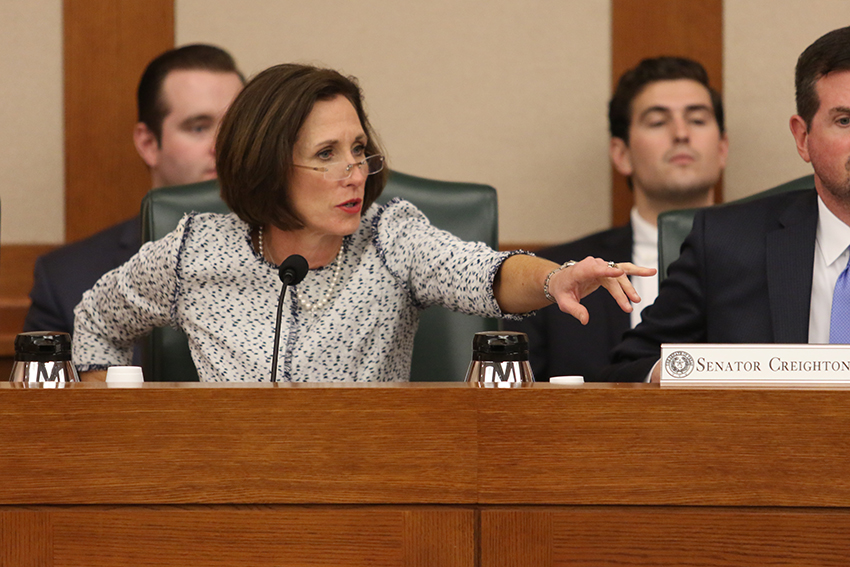Texas lawmakers in 2017 spent weeks fighting over various iterations of the so-called “bathroom bill.” But weeks into this year’s legislative session, there has been barely a whisper about bringing it back. However, there could be new challenges for LGBTQ Texans on the horizon.
Last session, Lt. Gov. Dan Patrick pushed through the Senate two versions of the bathroom bill, which would have mandated transgender Texans use the public restroom that coordinates with the sex on their birth certificate, only to have both defeated in the House.
Patrick said in January the bill is “no longer needed” and new House Speaker Dennis Bonnen, R-Angleton, mentioned shortly after receiving the gavel that he wants to maintain focus on fixing problems such as school finance and property taxes.
State Rep. Mary González, D-El Paso, identifies as pansexual and was one of the staunchest opponents of the bill in 2017. She and state Rep. Celia Israel, D-Austin, were the only two openly LGTBQ legislators at the time.
“If anyone ever questioned voting matters, I think just looking at the way in which there was a shift in culture regarding LGBTQ identity … people lost elections over (the bill),” said González, co-chair of the House’s new LGBTQ caucus. “In the past, Republicans were motivated more by a far-right ideology, and now they are motivated by trying to ensure they keep their seats.”
Freshman state Rep. Jessica González, D-Dallas, said the bill showed the cracks in the progress toward increasing acceptance of same-sex couples and part of the reason she decided to run was because her district has a large LGBTQ community.
Tasnim Islam, Plan II and women’s and gender studies freshman, said she didn’t know much about the bathroom bill until she worked on Danielle Skidmore’s campaign for the District 9 seat on Austin City Council. During the last session, Skidmore, a transgender woman, was one of the activists fighting against the bill.
“(With the bill gone), it’s a good opportunity to push more LGBTQ+ initiatives that might come up that some of the representatives have wanted for a while,” said Islam, who is also a member of the Queer & Trans People of Color Agency at UT. “But with a GOP majority legislature, it will definitely take a lot of perseverance and public advocacy to pass bills benefiting the community.”
Among the bills filed by the LGBTQ caucus, Israel filed one banning conversion therapy, a process widely seen as ineffective that tries to change a person’s sexuality by treating homosexuality as a mental health disorder.
On the other end, there have been several anti-LGBTQ bills filed. House Bill 1035 would allow religious organizations to discriminate against LGBTQ people, including letting them dictate which bathrooms people can use in their facilities. The bill also lets businesses that provide services related to marriage — such as making wedding cakes or providing venues — deny service to same-sex couples.
HB 1035 also allows county clerks who give out marriage licenses to recuse themselves based on their religious beliefs, provided they do not impede or delay the couple from receiving a license.
“It does resurrect portions of the bathroom bill, providing for a religious exemption, and that just opens up a can of worms,” Gonzalez said. “I don’t think anyone can disagree that religious freedom or religious liberty are fundamental American values, but I refuse to believe that religious liberty means that certain people do get special rights to discriminate against others just because of who they are.”





















